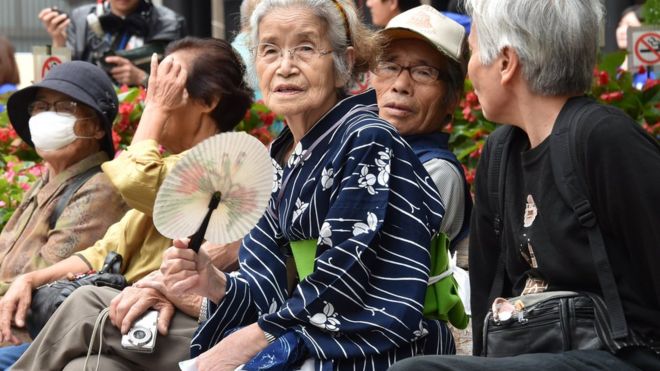
Japan's economy contracted in the final three months of 2015, adding to a string of setbacks for the government's economic reform policy.
Between October and December, it shrank by 0.4% compared with the previous quarter, official figures show.
Expectations for the numbers were for a quarterly contraction of 0.3%.
Weaker domestic demand, together with slower investment in housing, contributed to the disappointing numbers.
On an annualised basis the economy contracted 1.4% during the period. That compares with expectations for an annualised contraction of 1.2%.
The annualised figure is the rate at which the economy would have contracted over a full 12 months had the December quarter been a reflection of the entire year.
Ensuring exports grow

Prime Minister Shinzo Abe's plan to revive the economy - dubbed Abenomics - was introduced after his December 2013 election win.
Its aim was to combat deflation, which Japan has struggled with for nearly two decades, as well as boost demand and investment. It also wanted to weaken the yen, so helping big exporters like Toyota become more competitive.
But growth has remained a concern. Analysts say Japan needs to ensure exports grow in order to support future economic growth - for every 1% that Japan's economy grows, between 0.5 and 0.7% comes from exports.
The country also relies heavily on domestic consumption but its population is ageing and shrinking so fewer people are contributing to the economy.
Analysis: Rupert Wingfield-Hayes, BBC News, Tokyo
There has been a lot of hyperbole surrounding the Abenomics project.
The Bank of Japan's vast money printing project has been described as a "money-spewing bazooka".
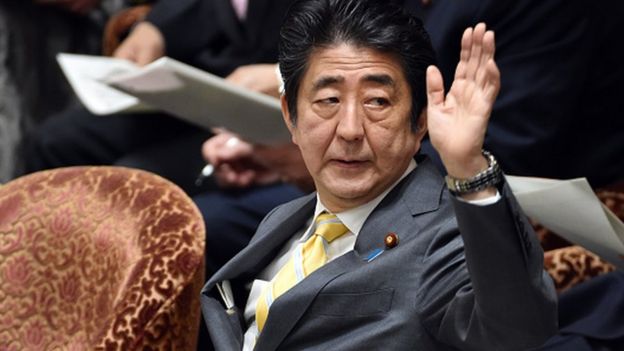
Mr Abe's economic policy - Abenomics - is based on three arrows:
- The monetary arrow: expansion of the money supply to combat deflation
- The fiscal arrow: increased government spending to stimulate demand in the economy
- The structural arrow: structural reforms to make the economy more productive and competitive
Haruhiko Kuroda, governor of the country's central bank, has repeatedly said he will do "whatever it takes" to defeat 20 years of deflation.
But the core of Abenomics is not reflation; it is weakening the Japanese currency, the yen.
Why? Because Mr Abe and his advisors know that the only easy way to get Japan growing again is to increase exports - the most important engine of growth for Japan, say analysts.
Not all bad?
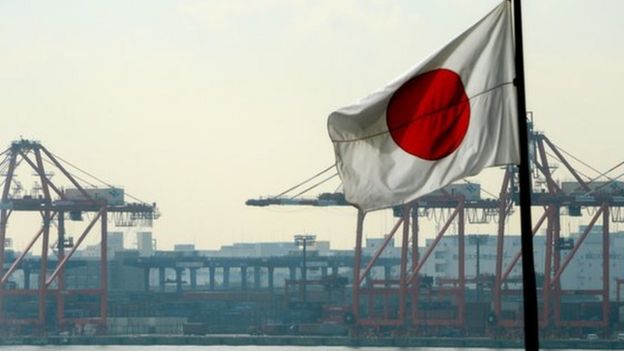
In the three months to September, according to revised numbers, Japan avoided a technical recession. But it has already been in recession four times since the global financial crisis.
Some analysts said Monday's numbers should be viewed in context.
"A single negative growth number should not be over-interpreted because the economy remains in rather good shape and continues to get strong policy support," said economist Martin Schulz.
Stock market worries
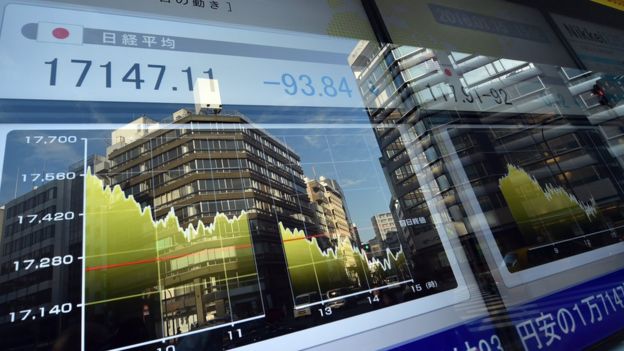
Investors seemed to shrug off Monday's growth numbers, with the benchmarkNikkei 225 jumping more than 4% shortly after the figures were released.
However, the benchmark shed more than 11% last week, which was a short trading week due to a public holiday on Thursday.
The country's big exporters were particularly hard hit as a stronger yen against the dollar hurt investor sentiment.
"Until December, exports have still been growing, thanks to a lower yen," said Mr Schulz. "But both trends have already been reversed during December, and the yen is rallying now," he added.
Other growth efforts
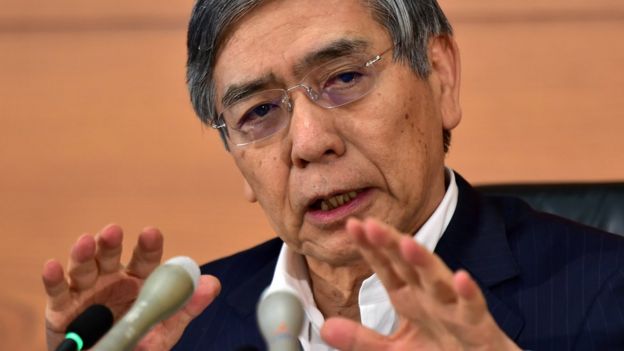
In a surprise move last month, the Bank of Japan (BOJ) introduced a negative interest rate of -0.1%.
The rate cut into negative territory - the first ever for Japan - is designed to increase spending and investment, which should in turn boost economic growth.
Some analysts however have cast doubt over how effective the rate cut will be. Mr Schulz said weaker investment, including housing investment, would probably carry on well into 2016.
"While lower interest rates certainly help investment, construction now faces restraints from the demand side because housing prices are already so high."
No comments:
Post a Comment